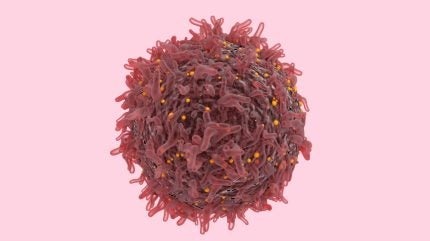Innate shelves lacutamab monotherapy plans in peripheral T cell lymphoma
22 Mar 2024
Phase 2Clinical ResultPhase 1Immunotherapy

Preview
Source: Pharmaceutical Technology
Innate announced the decision to not reopen the trial’s recruitment in its full-year earnings report. Image credit: Shutterstock/CI Photos.
Innate has dropped plans to evaluate lacutamab as a monotherapy in KIR3DL2-expressing refractory/relapsing peripheral T cell lymphoma (r/r PTCL)KIR3DL2-expressing refractory/relapsing peripheral T cell lymphoma (r/r PTCL) following disappointing data from a Phase Ib trial.
The French biotech, which has both PTCL and cutaneous T cell lymphoma (CTCL) programmes for its anti-KIR3DL2 antibody, highlighted the “prespecified threshold for meaningful activity not being reached” as the reason for the trial’s (NCT05321147) termination.
Innate announced the decision to not reopen the trial’s recruitment in its full-year earnings report released on 21 March.
Lacutamab has had a bumpy clinical journey. The US Food and Drug Administration (FDA) placed a partial clinical hold on the drug’s trials in December 2023, following a death from a rare haematologic disorder in one of Innate’s CTCL trials evaluating lacutamab. The hold was lifted a month later after an analysis found that Innate’s compound was not to blame.
Whilst it is the end of the road for lacutamab as a monotherapy in PTCL, Innate is still investigating its potential use in the cancer type as a combination with the chemotherapy GEMOX – gemcitabine in combination with oxaliplatin. The Phase II KILT trial (NCT04984837) is being led by the Lymphoma Study Association (LYSA).
See Also:

Preview
Source: Pharmaceutical Technology
Cellectis files patent for engineered T-cells for immunotherapy with inhibited B2M expression

Preview
Source: Pharmaceutical Technology
Innate will also press ahead with its CTCL programme as planned. In December 2023, the biotech reported positive final data for its Phase II TELLOMAK study (NCT03902184) in patients with Sézary syndrome, a type of CTCL. The results included a 37.5% objective response rate in patients treated with a median of five prior lines of therapy.
Innate has also reported positive interim data from a Phase I trial investigating the drug in patients with mycosis fungoides (MF), also a type of CTCL. The company expects to present topline results from the study later this year.
In the financial results release, Innate’s CEO Hervé Brailly also pointed towards recent successes in its natural killer (NK) cell engager programme.
Innate has become somewhat of a specialist in NK cell engagers through its ANKET platform. The biotech has a range of NK-targeting therapies in clinical trials being tested as cancer treatments via a collaboration with Sanofi. The big pharma has licensed four NK cell engagers from Innate through a €400m ($437.5m) initial deal and a €15m ($16.4m) expansion.
With a view to Innate’s plans for 2024, Brailly said: “We expect notable milestones including final results from the TELLOMAK Phase II trial with lacutamab in mycosis fungoides, and progressing our first proprietary ADC programme, IPH45 towards an IND filing.”
For more details,please visit the original website
The content of the article does not represent any opinions of Synapse and its affiliated companies. If there is any copyright infringement or error, please contact us, and we will deal with it within 24 hours.
Organizations
Drugs
Hot reports
Get started for free today!
Accelerate Strategic R&D decision making with Synapse, PatSnap’s AI-powered Connected Innovation Intelligence Platform Built for Life Sciences Professionals.
Start your data trial now!
Synapse data is also accessible to external entities via APIs or data packages. Leverages most recent intelligence information, enabling fullest potential.





